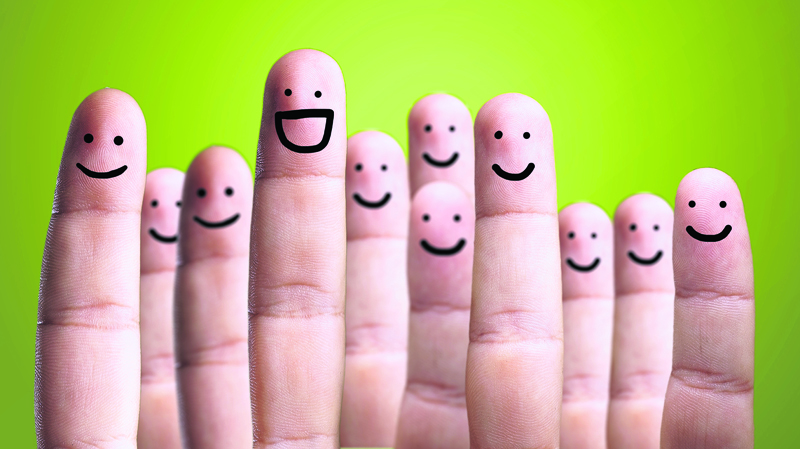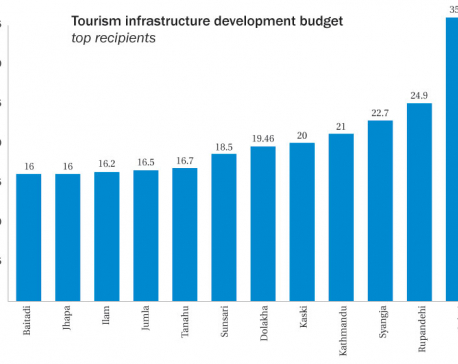
OR

We, as a nation, are quite the happy bunch, or so it would seem. That is if you believe the World Happiness Report, 2017 released on the International Day of Happiness (Yes, there is such a day in case any of you were wondering) that falls on March 20th. To use tennis parlance, we have now broken into the top 100 and we are currently ranked 99th in the world in terms of happiness or third in the South East Asian region, if that is the sort of geographical statistic that floats your boat.
We were ranked as lowly as 135 in 2013 but have been steadily climbing up the international happiness ladder for the last few years. Now, if that’s not progress, I don’t know what is! We really should contemplate measuring our nation’s output in terms of happiness – not unlike what our neighbor Bhutan does with its Gross National Happiness Index. At the very least, it will make for better reading than our abysmal GDP figures.
This gradual increase of happiness is very baffling when you consider the events that have transpired in our recent history. One Indian website even feigned confusion, asking rather condescendingly: We are ranked below Nepal and Bangladesh? Are you sure? As if this sort of news was the harbinger of doom.
We have, on average, apparently become happier in the last decade and this information is enough to leave me (and a lot of other folks) incredulous. Really? Do we really have it so good or is everyone else smoking something we don’t know about?
While the report itself is full of statistical information and explanation done to justify the accuracy of its findings, a brief look at the comparative analysis of the time period between 2005-2007 shows that Nepal, on average, was happier during the years 2014-2016 than 2005-2007. I say on average because happiness is really a personal perspective and depends on your mood on any given day and even your general state of wellbeing around that time period. Happiness and misery also happen to be subjective – my happiness could hinge on a bottle of beer and someone else’s could on love, affection and all that jazz. A working man’s source of misery may be his job whilst for our young folks the lack of Wi-Fi could be the cause of untold misery.
Nevertheless, the information is still surprising because the years 2014-2016 were particularly hard on us judging even by our abnormally high standards of resilience. We suffered through the huge earthquake in 2015 and then the promulgation of the constitution brought about that economic blockade from India that severely crippled our industries and put us through untold hardships. Yet the fact that we are relatively happy perhaps points to people having bigger problems elsewhere than the actual ‘contentment’ we feel with our lives.
This is in contrast with the time period from 2005-2007, when we were experiencing a huge political upheaval with the Maoists laying down their arms and joining mainstream politics. This brought about hope and optimism towards the end of that period but we are told were relatively less happy then. The irony is that while the country is still plagued by the same old issues and hasn’t made any worthwhile progress (the promulgation of the constitution remains an exception) we seem to have become progressively happier.
This happiness can be explained by the fact that while developing and developed countries have higher expectations we are still grappling with satisfying our basic needs.
We might subconsciously have lowered our standards to such an extent that just meeting the bare minimum and getting by keeps us happy. When you think of it, a paved road near our house, running water in the taps, uninterrupted supply of cooking gas, petrol, electricity are quite enough to qualify as happy times for our long-suffering populace.
Our strong showing owes a huge chunk of its performance to the social support variable which is among half a dozen variables used by the report to measure happiness – some of the others being GDP per capita, healthy years of life expectancy, and trust as measured by a perceived absence of corruption in government and business. We can forget about the last variable because if it were the deciding factor we would probably be at the bottom of the pile, unless the respondents were politicians and lawmakers.
The social support variable, as measured by having someone to count on in times of trouble, basically involved a response to the question: If you were in trouble, do you have relatives or friends you can count on to help you whenever you need them, or not? This is a fairly broad question and most of the respondents would have answered yes because in our case if there’s one thing we can count on it’s our real social network (not the virtual one).
So then, are we actually a happy lot? If anyone asked us most of us would probably go ‘Meh’. It may be particularly hard to be happy here in the capital with all the dust flying around, pollution, lack of water, overcrowding, and periodical shortage of basic necessities but as we are resigned to living in these conditions there really is no point in being miserable either. I wouldn’t necessarily call us happy, we just happen to inhabit that middle ground somewhere that borders on insouciance. Our resilience and resourcefulness has allowed us develop a sort of immunity to our hardships that helps us get by. Apparently, it called happiness. Oh well, more or less.
The writer loves traveling, writing, and good food when he is afforded an escape from the rat race. He can be contacted at gunjan.u@gmail.com
You May Like This

Countries with more women in government are less corrupt: study
A greater representation of women in the government is bad news for corruption, according to a new study published in... Read More...

Facebook to show more content from friends, less from publishers and brands
California Jan 11: Mark Zuckerberg has pledged to devote 2018 to "fixing" Facebook. Now the Facebook CEO is kicking off... Read More...

Districts getting more tourists given less budget
KATHMANDU, July 12: Rasuwa district is one of the popular destinations for foreign tourists. Based on foreign tourist footfall, the... Read More...










Just In
- Heavy rainfall likely in Bagmati and Sudurpaschim provinces
- Bangladesh protest leaders taken from hospital by police
- Challenges Confronting the New Coalition
- NRB introduces cautiously flexible measures to address ongoing slowdown in various economic sectors
- Forced Covid-19 cremations: is it too late for redemption?
- NRB to provide collateral-free loans to foreign employment seekers
- NEB to publish Grade 12 results next week
- Body handover begins; Relatives remain dissatisfied with insurance, compensation amount







Leave A Comment